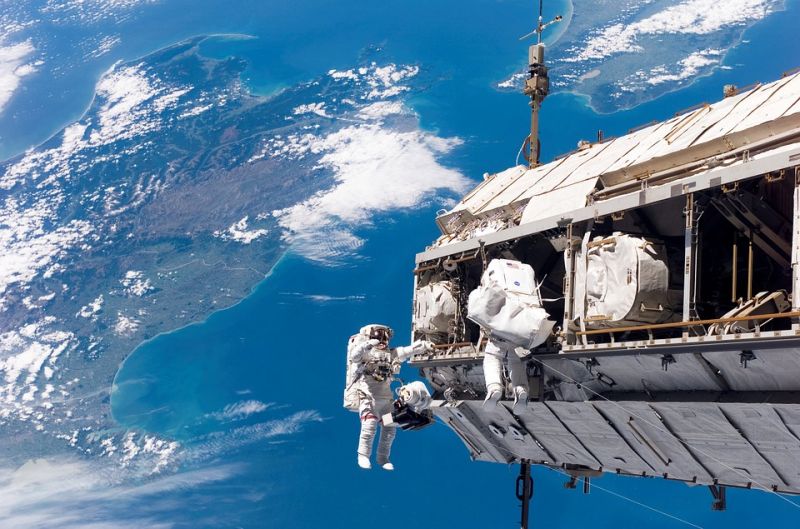Kurita Delivers Water Recycling Technology Demonstration System for the Japanese Space Station
Published on by Water Network Research, Official research team of The Water Network in Technology
Kurita Delivers Water Recycling Technology Demonstration System for the Japanese Experiment Module "Kibo" on the International Space Station: Verification Testing at the Japanese Experiment Module "Kibo" to Start in 2019
Kurita Water Industries Ltd. announced the delivery to the Japan Aerospace Exploration Agency (below, JAXA) of a flight model of its water recycling technology demonstration system for use at the Japanese Experiment Module "Kibo" on the International Space Station. There are plans to launch the system before the end of 2019 to start verification testing at the Japanese Experiment Module "Kibo".

Representative image source: Pixabay, labeled for reuse
In 2011, Kurita concluded a joint research contract with JAXA to study future models of water recycling systems. Kurita has researched the elemental technology and treatment methods for a water recycling system to collect water (urine) generated inside the International Space Station (below, ISS) for recycling and processing into potable water. In October 2015, Kurita received the order to manufacture the system from JAXA. Since then and jointly with JAXA, Kurita has tested performance stability and verified durability under the conditions of use at the ISS to establish the specifications for the equipment.
JAXA aims to build an independent Environmental Control and Life Support System (ECLSS) for manned space explorations in the future. Since a water recycling system that can be used stably and for extended periods of time is a critical technology for ECLSS, Kurita plans to continue the joint research with JAXA based on the outcomes of the demonstration tests on "Kibo".
The water recycling technology demonstration system consists of a control system and a water treatment system composed of an ion exchange unit, an electrolysis unit, and an electrodialysis unit. To purify urine to a potable water standard, the treatment system removes calcium and magnesium components contained in the urine through ion exchange, subjecting the organic matter to electrolysis, and removing the ions through electrodialysis. By carrying out the electrolysis under high temperature and high pressure, it is possible to completely break down persistent organic matter.
This system is capable of a high level of water recycling (recycling rate of 85% or higher). In addition, it eliminates the need to replace consumables since the resin for the ion exchange unit is regenerated within the system. Compared to the water recycling systems currently used for the ISS, the equipment is one-quarter the weight and size of existing systems and consumes half the amount of power.
As outlined in the Maximize Value Proposition 2022 (MVP-22) Medium-Term Management Plan, the Kurita Group has identified the social issues that demand our attention— solutions to the water resource issues, the sustainable use of energy, waste reduction, and production technology progress in industry—and we are making every effort to create shared value with society. By applying advanced water technologies developed in the industrial sector to the cutting-edge field of space, we will implement the next-generation water recycling system for manned space explorations while using the acquired technology and expertise to promote research and development that aims for the use and application of compact and energy-efficient water recycling systems for daily life and industry on planet Earth.
By Kurita
Media
Taxonomy
- Water Reuse & Recycling
- Technology
- Wastewater Collection
- Water Recycling
- Rainwater Harvesting